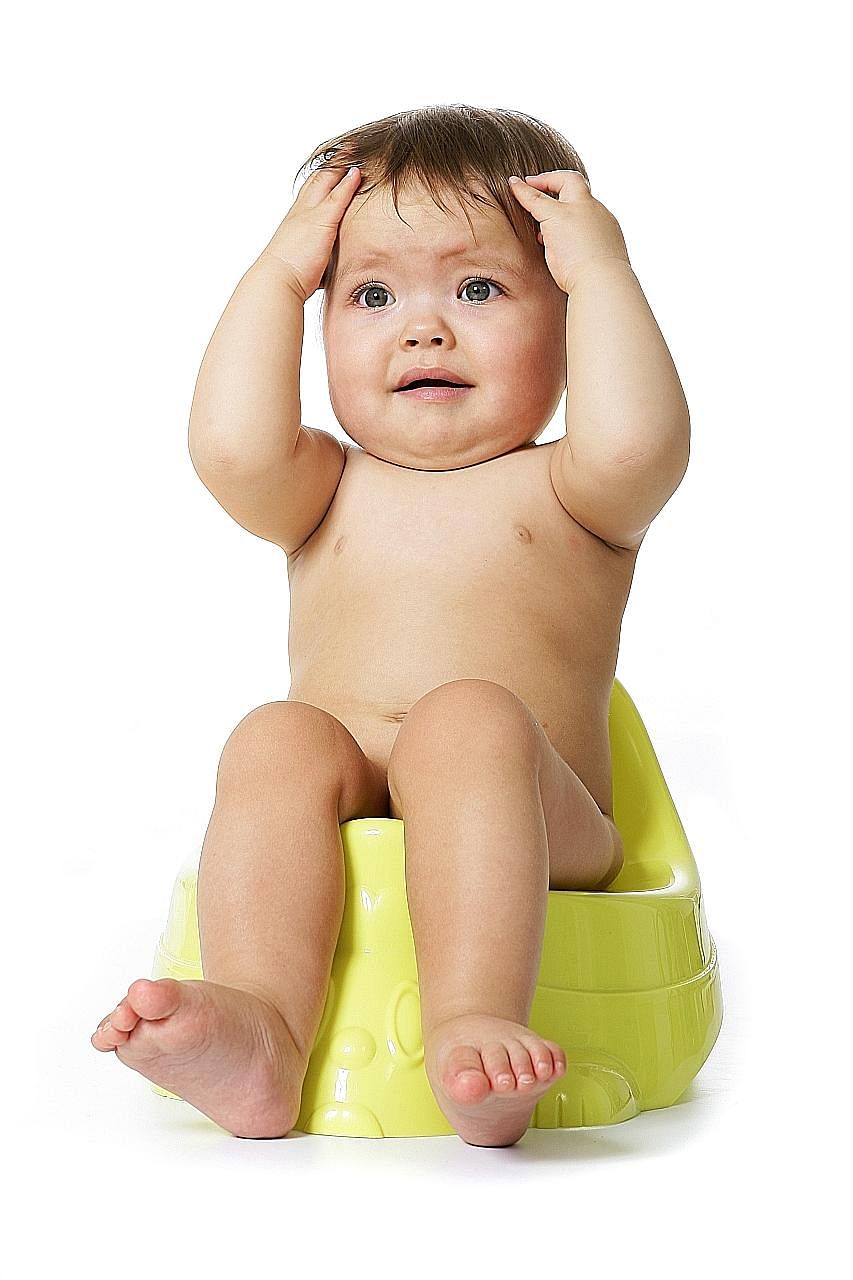NEW YORK • Children love potty humour, according to parent and paediatrician Howard J. Bennett.
If your child is fixated with boogers, belching and bad breath, you can use this as an opportunity to discuss how the body works.
"I often use potty humour to explain things to my young patients, sometimes as their parents look on in shock. But guess what?
"The kids remember when I tell them about why they have something called flatulence. And I hope I'm giving their parents, who are often so attuned to telling them to be proper and behave, an excuse to have a little fun too," he added.
But if the parents are clueless, he has written a book called The Fantastic Body: What Makes You Tick & How You Get Sick to help them explain the body's inner workings.
Keep your "nose" out of other people's affairs: Sneezing is a reflex that propels mucus and foreign objects out of the nose. When you sneeze, air and thousands of tiny mucus droplets shoot out up to 7.6m through the air.
Any germs surfing on the sneeze could land on others and make them sick. Hence, this may help explain to your kid why he needs a flu jab, even if he fears the needle.
Spit out the truth: Your mouth has hundreds of tiny glands that make saliva. Though kids may think the purpose of saliva is to have spitting contests with friends, it actually has more important things to do.

Saliva keeps your oral tissues moist, mixes with food to make it taste better and easier to swallow, and contains antibodies to help prevent tooth decay and other infections in the mouth.
Dragon's breath: Your mouth is home to billions of "good" bacteria. These microscopic organisms do not make you sick, but live on your teeth, cheeks, tongue and every other structure in your mouth.
Since you do not eat or drink when you sleep, huge numbers of bacteria that would normally be washed down your throat have the opportunity to "party till dawn".
As these bacteria reproduce, they foul the air around them. The waste products they produce are what cause super-bad morning breath.
To burp or not to burp: When you swallow, small amounts of air get into your stomach too. Air is lighter than water so it rises to the top as your stomach busily churns away.
As the pressure rises in your stomach, the bottom end of the oesophagus briefly opens, letting the air escape. That is when you burp even if you are embarrassed about it.
But burping is an important part of digestion. If you were not able to burp, your stomach could become bloated, which can cause gas pains.
Rotten cheese: Not all the air you swallow exits your body as a burp. Some continues on to the last part of your intestinal tract where there are trillions of bacteria.
In addition to helping digest food, these bacteria also produce gases that add to the swallowed air.
Farts are made up of oxygen, nitrogen, carbon dioxide, methane and hydrogen sulphide. Most are odourless, but hydrogen sulphide packs a wallop. This is the chemical that gives farts a rotten-egg smell.
Smells like teen spirit: Have you noticed that an unwashed 16-year-old smells much worse than an unwashed six-year-old?
People have two types of sweat glands. Eccrine glands work at all ages. Apocrine glands do not do so until a child hits puberty.
The types of bacteria that produce body odour love to feast on the sweat produced by apocrine glands. That is why a stinky fourth-grader smells like dirt and a stinky 10th-grader smells like a locker room.
Grossness in books: Many children's authors use humour and "grossology" to keep readers glued to the page. The Captain Underpants books are filled with gross humour. Others, like The BFG (Big Friendly Giant), use humour and gross imagery more selectively.
Roald Dahl does this in the BFG by creating a drink called frobscottle that has a side effect of producing whizzpoppers: farts that lift a person into the air. So the next time your child farts at the dinner table, use that as an opportunity to discuss digestion - or The BFG.
WASHINGTON POST
• The Fantastic Body: What Makes You Tick & How You Get Sick is available at $30.79 from Books Kinokuniya.
